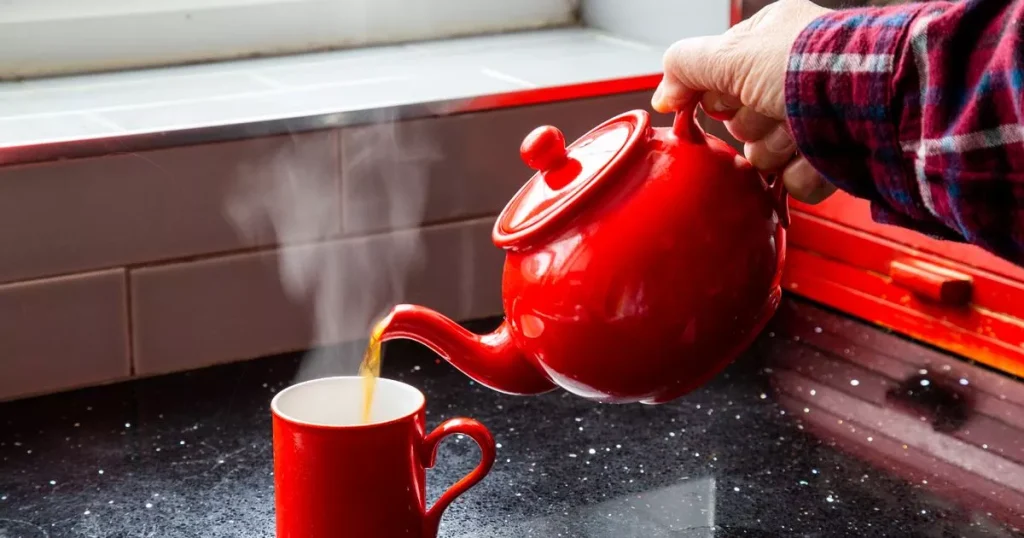Customers in the UK are experiencing a rise in the cost of tea due to the conflict in the Middle East and inflation. Data shows a 34.5% increase in tea trading prices over the past month, with this increase now being passed on to consumers. The Office for National Statistics reports a 7% rise in the price of an average box of 80 tea bags, from £2.46 to £2.63 from March last year. Some brands have seen even higher price increases, with one herbal tea brand up by a significant 52%.
The conflict in the Middle East, particularly in Gaza, has disrupted the tea supply chain, leading to a surge in prices. Yemen’s Houthi rebels have targeted Israeli-linked ships in the Red Sea, causing many container ships to alter their routes. This has resulted in economic upheaval, pushing up tea prices in the UK. Marco Forgione, Director General of the Institute of Export and International Trade, highlighted the impact of these recent upheavals on the tea market, leading to higher prices for consumers.
While some firms have raised their tea prices significantly, there are ways for customers to save money on their favorite teas. One example is finding a hanging garden egg chair for almost £100 less than what a retailer like Dunelm offers. This highlights the importance of shopping around and looking for deals to offset the rising costs of everyday items like tea. By being savvy consumers, individuals can mitigate the impact of price increases on their budgets.
National Tea Day is approaching, and the tea market is facing challenges that are affecting both producers and consumers. The rise in tea prices is not only due to inflation and economic uncertainty but also to geopolitical factors like the conflict in the Middle East. These disruptions in the global supply chain are trickling down to local markets, impacting the cost of everyday items like tea. Consumers are advised to be aware of these factors when making purchasing decisions.
The impact of the conflict in the Middle East on the tea market underscores the interconnectedness of global trade and how crisis in one region can have ripple effects on prices in another. As tensions continue to escalate, it is likely that the cost of tea and other goods may continue to rise. Consumers should stay informed about these developments and consider alternative options or cost-saving strategies to manage their household budgets effectively amidst these challenges.
Despite the challenges facing the tea market, there are opportunities for savings and smart shopping decisions for consumers. By exploring different retailers and comparing prices, individuals can find deals and discounts that help offset the rising costs of tea. Additionally, keeping an eye on promotions and special offers can lead to significant savings, allowing consumers to continue enjoying their favorite beverages without breaking the bank. As the market fluctuates, staying informed and proactive can help consumers navigate price changes and make informed choices about their purchases.















